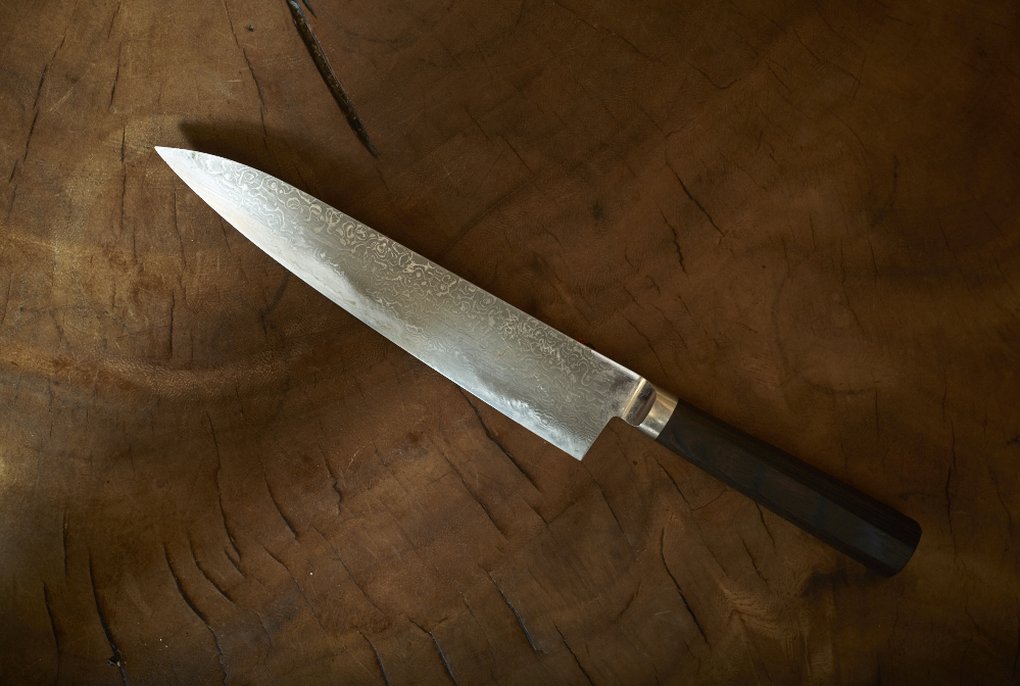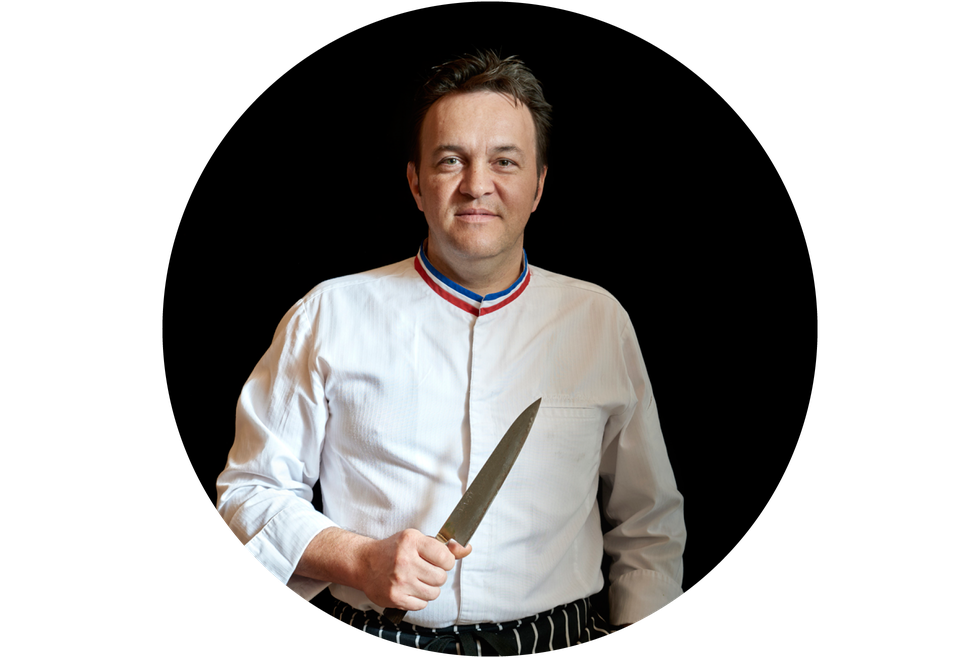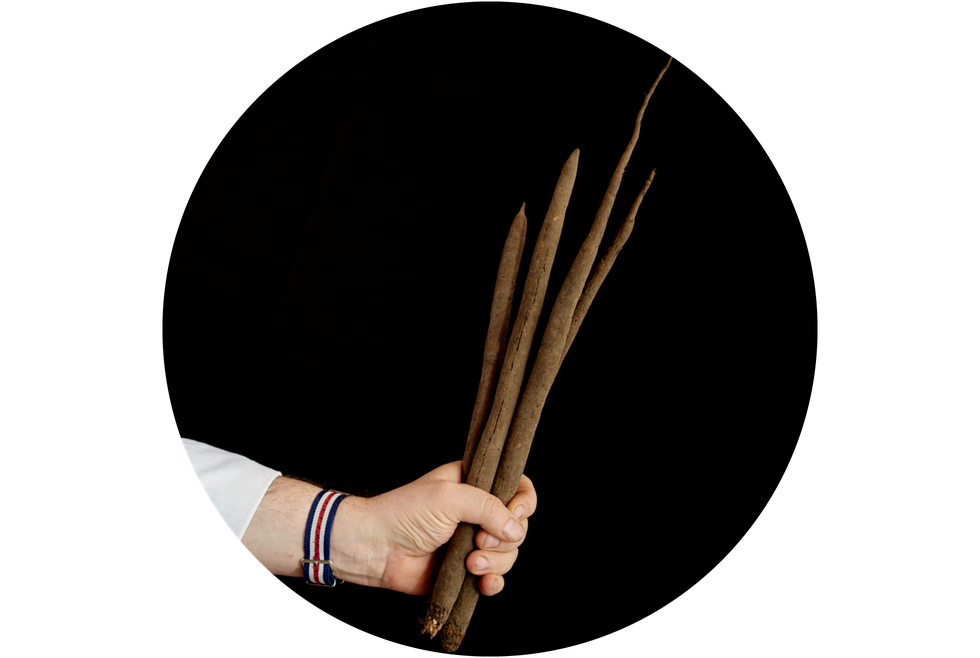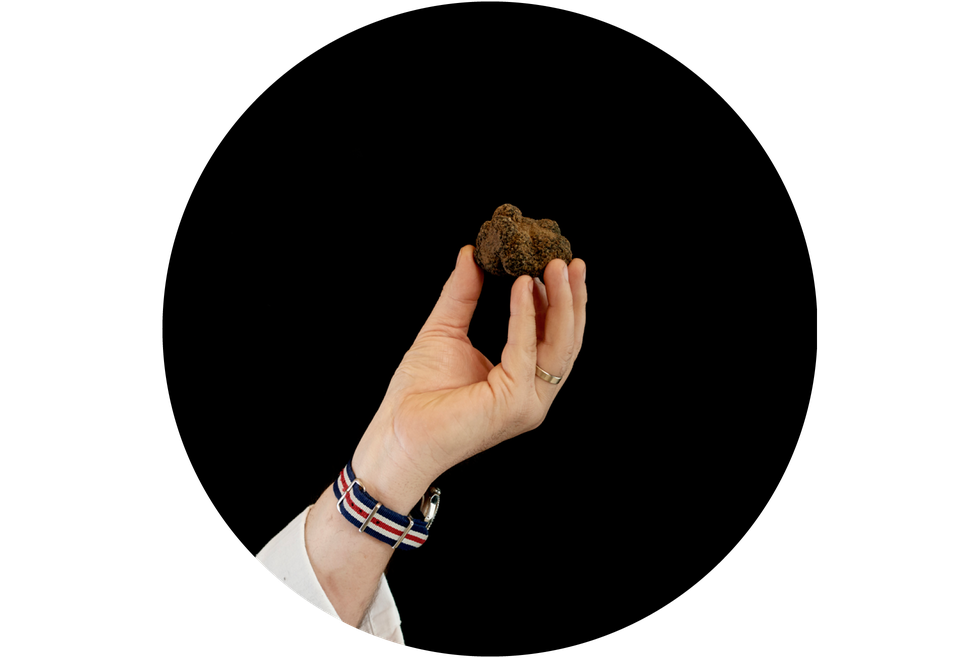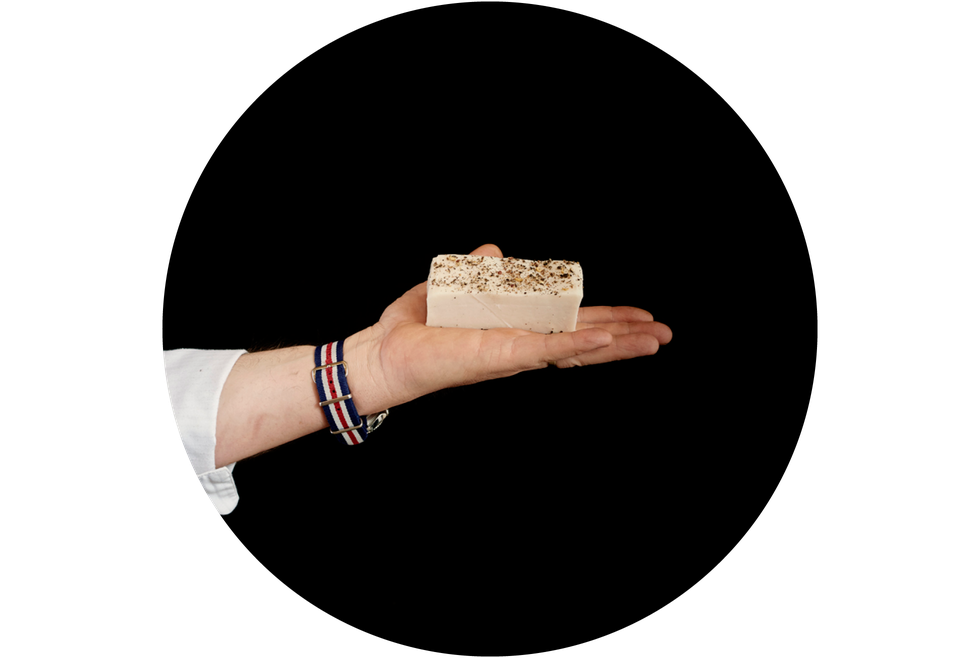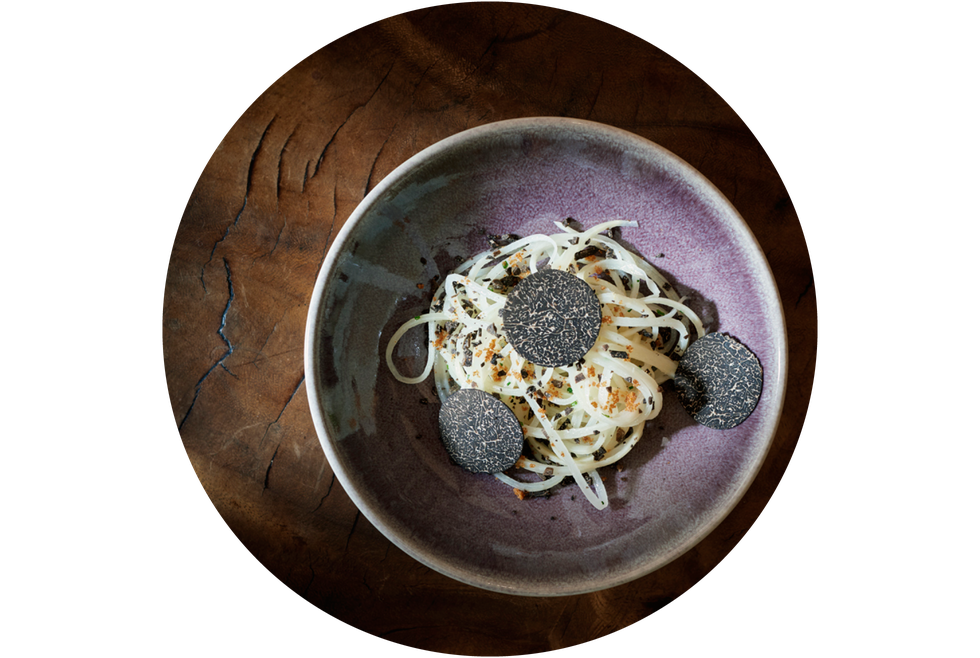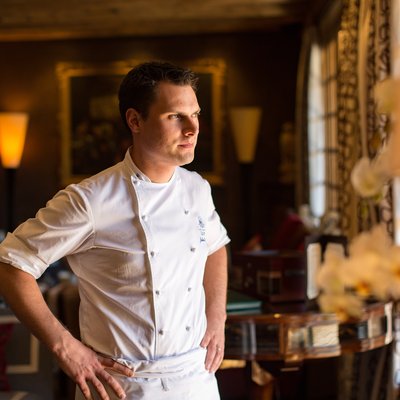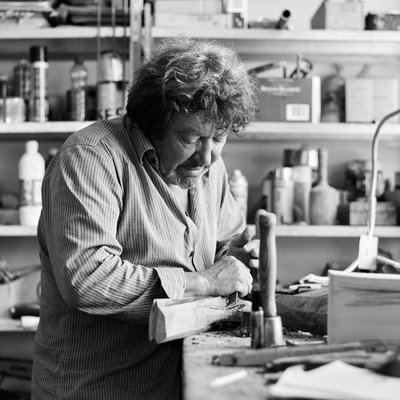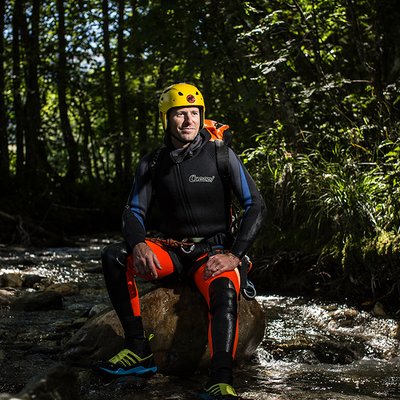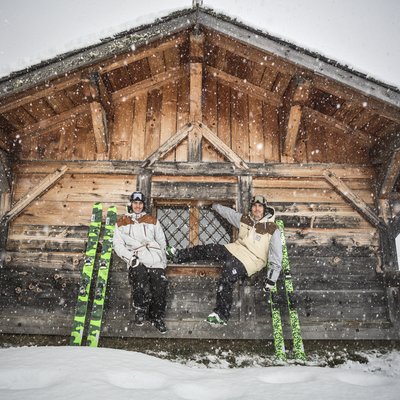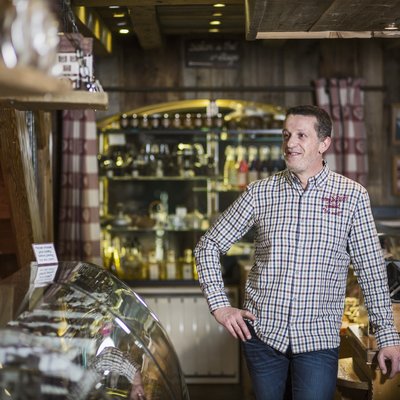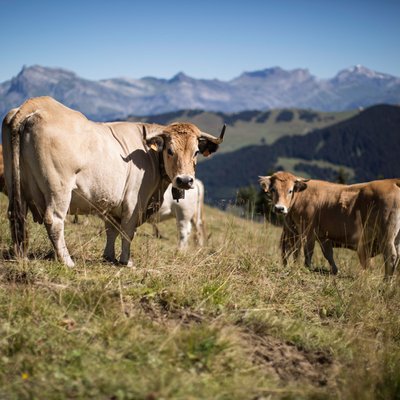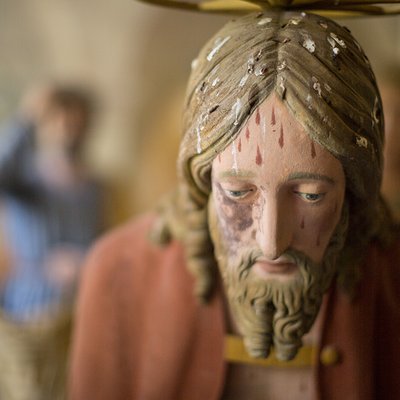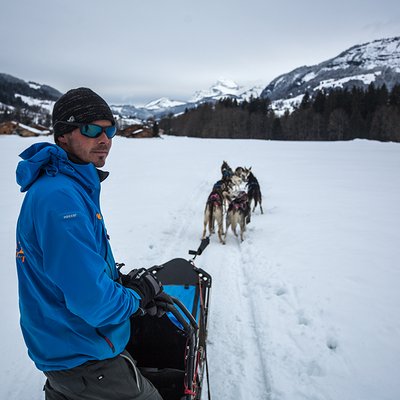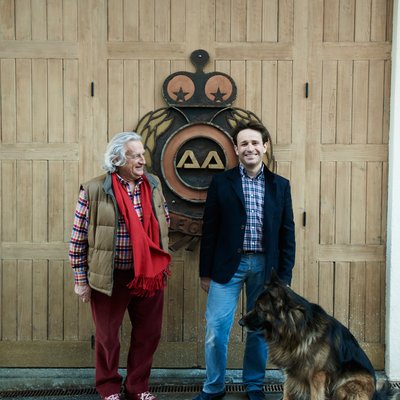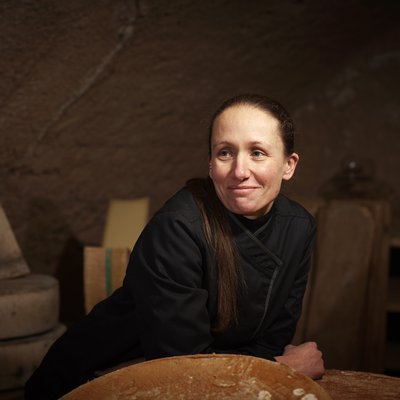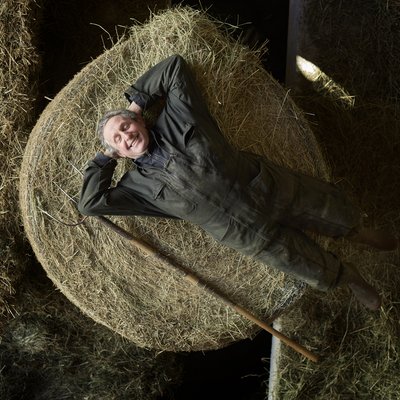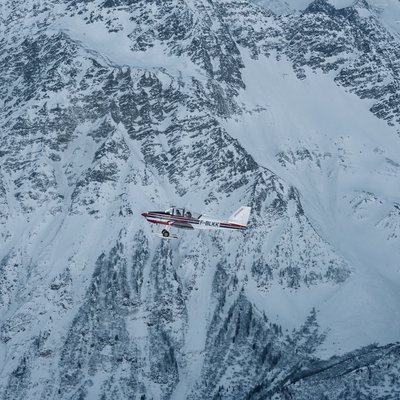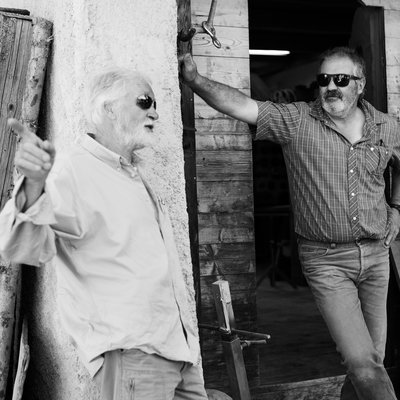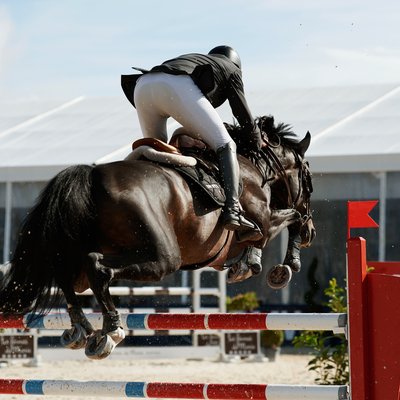A Chef'S Spirit
Michelin star chef Emmanuel Renaut worked hard to get to the top. Now he enjoys his creative freedom and joking around with the Megève chamois.
He is a three Michelin star chef and belongs to the top chefs in France. His dapper restaurant, Flocons de Sel is regarded as one of the finest dining spots in Megève. Emmanuel Renaut has good cause to celebrate because above all he realised his boyhood dream of living in the mountains.
Being outside and interacting with nature is what drives him to ‘re-invent local produce with malice’as French food critic Gilles Pudlowski describes his cooking style. One that attracts food lovers and connoisseurs from all over the world. Mr. Renaut’s credo of having fun at work might also be the key to his youthful looks and charming personality. After many years in a business demanding long hours, he has managed to preserve himself well.
His start in life would tell a different story however. After dropping out of school at the age of 16 he was pressed to find a job. So he signed up as a trainee chef in some kitchen. But Mr. Renaut’s true passion for food only began to blossom when he started working with names like Christian Constant in Paris. This ignited a passion in him that eventually led him to publishing a number of books and receiving accolades such as Meilleur Ouvrier de France. For Best of the Alps, Emmanuel Renaut takes an hour of his precious time to talk about why he thinks chefs cannot afford to work like artists ...and then we are in for a little surprise appearance in the late afternoon.
You were honored with Meilleur Ouvrier de France ... which translates into something like the best craftsman of France. What is a chef of your caliber – an artist or a craftsman?
I think it is both. In any case, both are hard work.
If you compare a chef who was just awarded with his first Michelin star to a mountaineer who climbed his first eight-thousander, does that make you want to climb higher?
We don’t work for the stars only, that comes after actually. I work to have fun and to constantly improve myself. It’s also my philosophy when it comes to life: When I do something, I want to be on top. But you know what, you actually never arrive. I ski about five times a week, even there I want to be the best. I am very competitive in that way. When you are in sports you are in a certain mindset. The same goes for the kitchen.
Spaghettis Salsifis Truffe Noir et Poussiere de Lard
How and when do you recognize the potential of a young chef?
As soon as you see the person ...It only takes a few seconds to recognize what this person can do or not.
And how about the potential in yourself?
Already when I started out I knew I wanted to be my own boss in my own restaurant before I turn 30. And I opened the first restaurant in the center of the village 17 years ago. It is difficult to be the chef and own the restaurant at the same time. You work 24/7. But freedom is expensive.
Can you tell us a little bit about finding your own style: When did you know you were ready to go off and do your own thing?
Just after I opened my first restaurant. Although I had my developed my own style I was still cooking in a more classic way because I needed to earn money too. I mean, think about artists: They become famous only after they die. In a restaurant you cannot do that...It is a matter of working your way up and then claim your creative freedom.
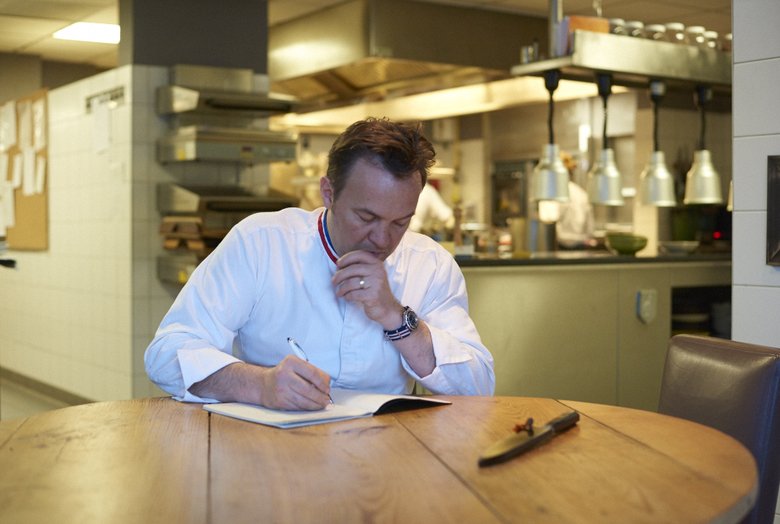
Are people more accepting of new things from you now or was it easier when you started out?
Not really. I would say it is the same. But if things are easy they are not as fun. You only really learn when things are difficult. For instance, I like technique when you don’t see it. Guests should look at the plate and think it is natural. I don’t like the style of molecular kitchen but I use a lot of their techniques.
Twenty or thirty years ago the scene was rather closed. Each chef was doing his own thing. But now there is a mood of sharing and collaborating out there. What has changed?
Generally the whole mode changed...There are many more good chefs out there, running small restaurants without service. The same goes for the guests. Nowadays it is common that people spend 10 hours in a plane from Asia or the USA to come and try my food. They are very sharp with regards to the different styles of chefs around the world. I really do believe that the guest has changed the chef. Although it is a mutual thing I would even say that the guest has changed more than the chef. For one, you need to change. It would not work for me to do my food the same way I did 17 years ago. It is like looking at a cookbook done by a famous chef a few years back, you know.
Do you think that the internet played a big part in this?
Chefs are much more present, the food blogging scene is still booming. Yes, a little bit too much actually. You know people want to take pictures with chefs all the time and a second later your face pops up all over Twitter or Instagram. People want to have a proof of ‘having been there, done that’. They collect experiences. I suppose it makes for a good hobby. Oh, look out there...!
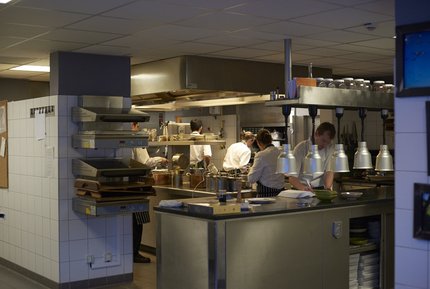
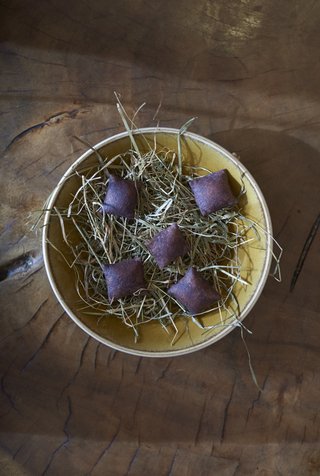
Emmanuel Renaut turns towards the window. Then he checks the time on his watch. “Ah, nearly five,” he says. He gets up from the round wooden kitchen table and opens the door onto the terrace. “You want to see the chamois (goat-antelopes)?” His voice gets a little excited when he points across to the mountains, drenched in orange-red sunlight. A herd of animals appear in the far distance. Mr. Renaut puts on a mischievous smile when he whistles for them. “They come out the same time every day.” Some of them stop and seem to raise their head. It is a little difficult to recognize their exact movement. But for Mr. Renaut, this special connection to his environment makes for the true pleasures of living in the Alps. “Wait another 15 minutes and you will see the herd of red deer,” he laughs.
So, let’s talk a little bit more then ... You once said in an interview that your most emotional culinary experience was with Alex Atala in São Paulo. What did you take with you to Megève?
You always take something with you whether it is good or bad. I always need to feel the emotion on the plate. If I don’t know the guy, I don’t like the food. The same goes with my suppliers. I like the food from the chef, if I know what he thinks and what he is about. Alex Atala brought the story about the Amazon onto the plate. Like I do with the mountains. I would love to have a little bit of stone from the mountain on the plate for people to try it. But think about Atala’s interpretation of local: He does local food - from Sao Paulo to the Amazon. So, local in these dimensions spans a distance of 2000 kilometers.
Chefs often spend 20 hours in the kitchen. René Redzepi says coffee and Metallica. What keeps you going?
A lot of coffee. And a lot of sport. The next cable car is only five minutes away.
Any experience in the kitchen that you can translate into life?
Work hard, respect the people, and most important of all, have fun. All this, and the world would be a better place.
Text: Sandra Pfeifer
Photos: David Payr // friendship.is
Oct. 13, 2016

